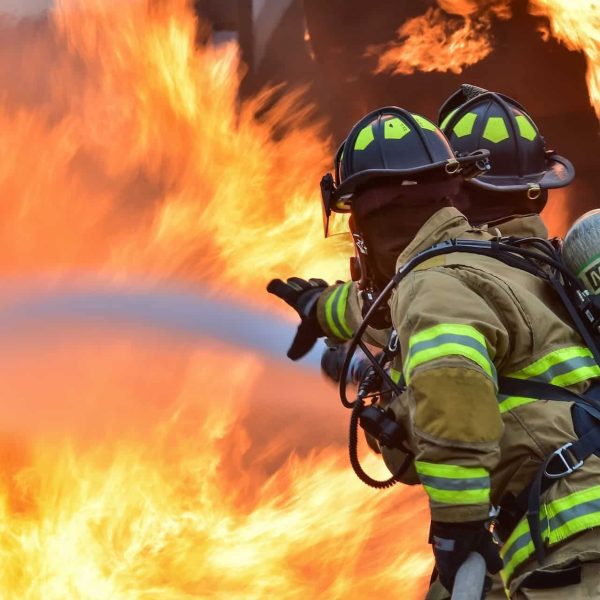The fireground is a workplace that is filled with uncertainty, rapid decision making with incomplete or inaccurate information, feedback that is ambigous, delayed or entirely absent, and high-stakes consequences for mistakes. In this demanding environment, understanding one’s competence level is not just about professional growth; it can ultimately be a matter of life and death.
A Dangerous Combination: Enter the Dunning-Krueger Effect.
The Dunning-Krueger effect states that people often have a cognitive bias leading them to perceive themselves as more competent than they actually are. Competence can be broken down into four stages:
Unconscious incompetence: This person doesn’t know what they don’t know. Or in other words, “ignorance is bliss.” Individuals with limited experience or skill often overestimate their abilities. This overconfidence can lead to poor decision-making, and inefficiency or inadequate performance. Mistakes that are made are not necessarily seen as such and improvement in performance is unlikely when there is a false sense of competency.
Conscious incompetence: This person has achieved a greater sense of self-awareness and has a new appreciation for the deficit between the desired state and their own current skill level. As individuals gain experience and knowledge, they recognize the complexity of the task and become more accurately aware of their actual abilities. Addressing mistakes at this stage can be useful if the appropriate feedback is provided.
Conscious competence: This person knows how to perform the task but it requires significant focus, effort, and/or concentration. Mistakes are more likely to occur under conditions that are taxing and that may interfere with the ability to focus on the task at hand.
Unconscious competence: This person can perform the task under most circumstances without a conscious effort as the skill has become a “muscle memory.” Repetition is the key to establishing this level of skill.
The Relevance to the Fire Service
This pattern is not confined to one profession or skill set. It’s a human phenomenon that impacts us all, including those in the fire service. Firefighting is a field that requires continuous learning and adaptation. Understanding the Dunning-Krueger Effect can help fire officers and firefighters navigate their professional growth.
Training & Development: Recognizing the potential for overconfidence can lead to more targeted and effective training, focusing on the areas where improvement is genuinely needed. Training needs to include accurate, timely, and regular feedback so that participants have objective information to help them better understand their individual strengths and weaknesses.
Safety Considerations: Overestimation of one’s abilities can lead to unnecessary risks on the fireground. Awareness of this bias can be helpful in an effort to institutionalize a culture of humility, vigilance, and safety. Training programs should incorporate real life examples of the potential risks associated with specific fire ground duties, decisions, and outcomes to make drills relevant and as realistic as possible. The use of LODD death reports is an excellent method to honor the sacrifice of those who have died in the line of duty and should be used to emphasize best practices in an effort to avoid repeating mistakes of the past.
Leadership Development: For fire officers, understanding this cognitive bias can aid in identifying potential areas of growth in team members and themselves; leading to more effective leadership and mentoring. Leaders are required at every level of the organization as all members are vulnerable to this bias. Every day is a training day and at every level.
Applying the Knowledge Through Fire Simulations
Realistic Scenarios: SimsUshare provides a platform for practicing complex fire scenarios. Repeated exposure in a controlled learning environment helps bridge the gap between perceived competence and actual skill. Scenarios can be created to address any number of specific emergency scene contexts that would otherwise be too expensive, too hazardous, or logistically impossible.
Objective Feedback: Running a fire simulation provides an opportunity for fire officers to provide objective feedback and assessment to participants, allowing firefighters to understand their real abilities without the influence of cognitive bias. Simulations offer the opportunity to provide and receive immediate, accurate and constructive feedback which can be immediately reinforced through additional training and repetition. “Don’t practice until you get it right. Practice until you can’t do it wrong.” Quality feedback from an officer/mentor/coach is essential to making this a reality.
Customized Learning Paths: Fire departments can design training specific to the needs of their teams, ensuring that skill development is aligned with actual competencies. Computer based simulations can be quickly customized to provide opportunities to practice in areas of need that may be different across the individuals of any team.
Understanding and recognizing the Dunning-Krueger Effect can lead to a more competent, aware, and safe fire service. By embracing this psychological insight and utilizing tools like SimsUshare, fire departments can focus on fostering a culture of continuous growth, accurate self-assessment, and operational excellence.

